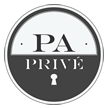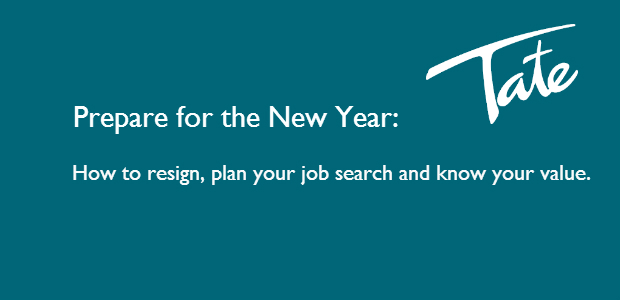After the festive period, employees tend to take new resolutions which often involve changing job.
Here are a few tips on how to resign in a calm, calculated and diplomatic manner.
What you need to focus on is being clear about why you’re leaving. If your employers are surprised, angry or emotional, don’t panic; calmly and logically explain your reasons.
As a PA or EA, you know the importance of maintaining good relationships with everyone you meet, and especially everyone you work for. So, when you resign, emphasise the things you’ve enjoyed. A bit of positivity from you will help to secure a positive reference.
Make sure your letter is succinct, grammatically correct, and follows the usual conventions. Make sure you include:
- Name
- Date
- The name of the person it’s addressed to
- When your notice is effective from
- Your signature
It’s tempting to stealthily drop your notice into your boss’ office just before you head home, but you’ll achieve far more respect by handing it to your boss face-to-face at the beginning of the day.
You may have an idea of what this should be, and that may differ from what your employer says. Check it carefully and don’t be pushed into anything you’re unhappy with. Equally, don’t be unreasonable – you don’t want to leave on a sour note.
If you’re leaving primarily for a higher salary, think carefully about what you would want from your current employer, should they offer you more money. Take into account the impact of accepting a counter-offer too. Your current employers may view you differently as a result of this process, and your relationship may change. Plan ahead and get an understanding of what you want and how you’ll react in every eventuality. With good preparation and a professional approach, you’ll be able to resign with your reputation and dignity intact.
Planning your job search
Whatever the reason is for your latest job search, taking a step back and thoroughly assessing your options is vital. Wherever you’re headed, good planning will ensure that your next career move is the right one.
Firstly, it’s important to think about why you’ve decided to look for a job. Which of these roles are you looking for?
- A similar role in your existing industry
- A similar role in a different industry
- An entirely new role or lifestyle
A broad understanding of this will help to refine your search, and get you on the right track before you take a deeper look at yourself and your options.
- Security and stability
- A steady career path
- Regular income and benefits
Negatives
- Possible lack of variety
- Lack of flexibility
Positives
- Flexibility and independence
- No earning limitations
- Job satisfaction
- Freedom to be spontaneous
- Freedom in decision-making
Negatives
- Loss of security
- Unpredictable income
- Loss of pension, paid holiday and other benefits
- Potentially long and unpredictable working hours
- Pressure and potential loneliness through lack of support
Positives
- Pursuing lots of opportunities simultaneously
- Developing a wide variety of skills
- Flexibility and freedom
Negatives
- Unpredictable income
- Lack of security
- Potential loss of conventional benefits
Positives
- Variety and flexibility
- Development of new skills
Negatives
- Varied income
- Difficulty securing benefits
- Employment breaks (which can be damaging for long-term opportunities)
Positives
- Freedom and independence
- Excitement of new challenges
- Satisfaction and reward
Negatives
- Likely to be financially tougher
- Loss of security and working contacts
- Professional skills are not necessarily used or developed
Positives
- Challenging, rewarding and exciting
- Personal development and growth
- A new lifestyle
Negatives
- Financial and personal risk
- Loss of social and working contacts
- Stress and pressure of relocating your life
You now have an understanding of your needs and aspirations, as well as a sense of which employment options appeal to you. But you need to find out some information about the market to refine what you’re looking for. Take the time to refine and evaluate your options – aiming to filter them down into a small selection of potential roles. The more specified your search becomes, the easier the process of finding a new job will be.
Knowing your value
Selling your skills will be vital in securing your next job – which makes understanding what they are a significant first step.
In some cases, the things you’re good at will correspond with the things you like doing – we all tend to put more energy into the tasks that we enjoy. So, it’s worth initially considering what you enjoy at work, as this may help to piece together your unique skill-set. Think about the following:
- What roles have you enjoyed?
- What factors have influenced these roles?
- Were these positions at the same type of company?
- What roles haven’t you enjoyed?
- What kind of people have you enjoyed working with?
- What really matters to you at work (variety, money, challenge)?
Above all, asking these types of questions will ensure that in your latest job search you pursue the things you love, and avoid the things you don’t.
Transferrable skills – the skills you take from one job to another – are what make your career change possible. Your employability will rely heavily on showing precisely what those skills are, and how you’ve developed them. So, you need to work out exactly what they are and where they came from.
At work Firstly, consider the tasks you undertook within your previous roles:
- Think about the tasks you enjoyed – what skills did they require?
- Consider the things you did that no one else could – what skills did you develop?
- Think about your proudest working achievements
- Think about your greatest challenges and successes – what skills were needed to overcome/achieve them?
Outside of work Now reflect on the skills you may have developed outside of work:
- Think about your hobbies and interests
- Think about the skills these interests demand
- Think about which hobbies you’re particularly good at – what do you do better than anyone else?
- Think about the skills you use at home that can be applied to work
Feedback Understanding how others have perceived your ability is also an important way of knowing your value:
- Think about what other people say you’re good at
- Think about what people at work would typically ask you to do
- Consider all feedback you’ve received in performance reviews and appraisals
- Think about any feedback you’ve received when you’ve applied for roles in the past – what was it that got you the job?
- Consider what friends and family say – what do they think are your greatest attributes?
Your style of work – how you organise tasks, your flexibility and how you interact – will help you to focus on roles and organisations that are a perfect fit for your personality. How to find your work style
- Speak to existing and former colleagues – they’ll be the best source for an honest understanding of what you’re really like at work. It’s also worth asking people you’ve worked with less intimately to see how their impression differs
- Where appropriate, speak to people you worked with externally – clients, contacts and anyone else who may be able to provide further insight
- Search the internet for career blogs and tests, which can help to refine your understanding of how you work
What to consider
- Whether you’re at your best in a team or independently
- How you cope with pressure
- How you manage difficulties and challenges
- What you want from a manager – close contact or independence?
- Whether you like managing people – and if so, how you manage people
- How you solve problems
- How you manage large projects – do you prefer working alone or collectively?
- What processes you use to organise your work
- How you create ideas
With a better understanding of what you enjoy, what your skills are and what your work style is, you’ll be able to understand what your value is. Knowing precisely what you’ve got to offer makes it far easier to show prospective employers why they should choose you.





